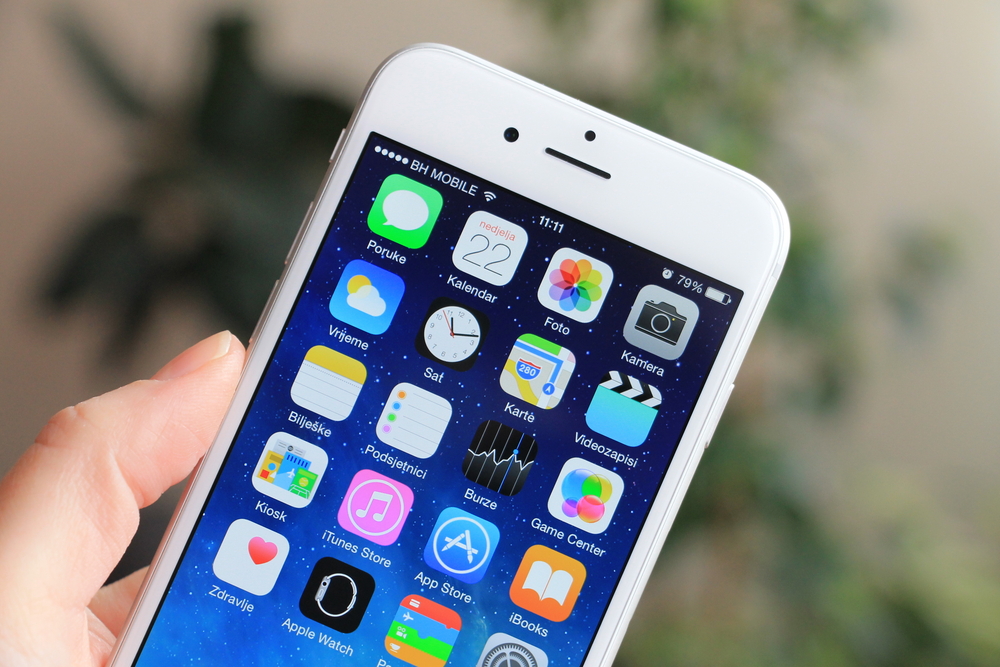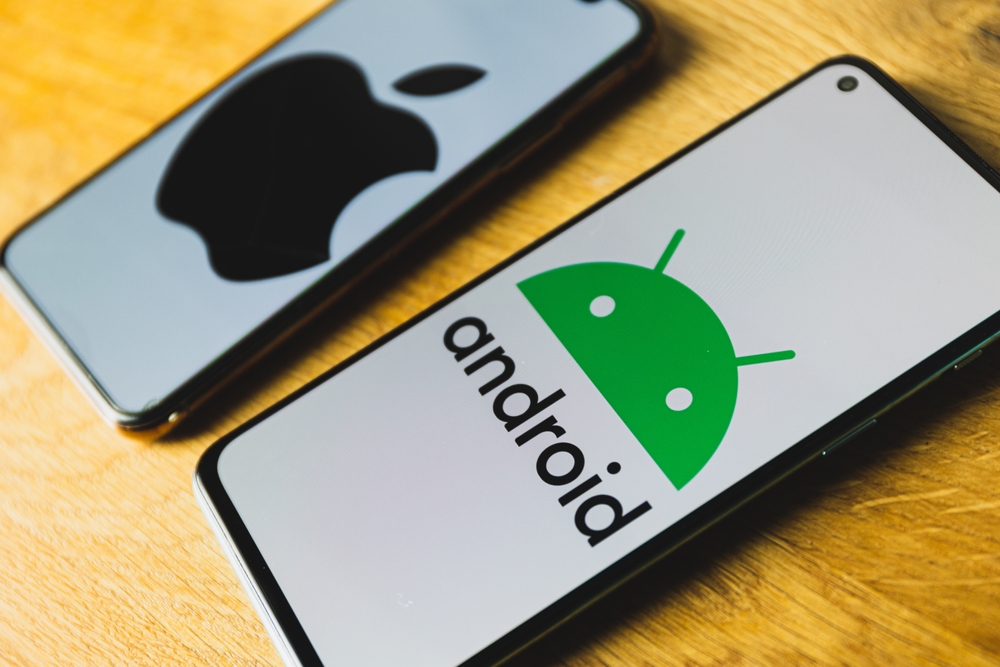
Mastering Mobile App Marketing: Expert Tips and Tricks for Promotion Success

Mobile apps have become an integral part of our daily lives. From games to productivity tools, there's an app for almost everything. In this crowded marketplace, it's crucial for app developers and marketers to stand out and effectively promote their mobile Google Play or App Store app s. With the right strategies and tactics, you can master mobile iOS or Android app marketing and achieve success. In this article, we'll explore expert tips and tricks to help you effectively promote your mobile App Store or Google Play app and reach your target audience.
1. Understand Your Target Audience
Before diving into mobile Android or iOS app marketing, it's essential to understand who your target audience is. Who are the people that will benefit the most from your app? What problems does your app solve? Conduct thorough market research and create buyer personas to identify your target audience's demographic information, interests, and preferences. This information will help you tailor your app marketing efforts to effectively reach and engage your potential users.
2. Optimize Your App Store Listing
The app store is the first place where potential users discover new apps. Optimizing your app store listing is crucial for maximizing visibility and conversions. Start with an attention-grabbing app icon, a compelling app name, and a well-written app description that clearly highlights your app's features and benefits. Use relevant keywords in your app title and description to improve search rankings. Including screenshots and videos that showcase your app's UI and functionality can also boost conversions.
3. Implement App Store Optimization (ASO)
App Store Optimization (ASO) is the process of optimizing your mobile app store listing to rank higher in search results and increase visibility. ASO involves keyword research, which helps you identify the most relevant search terms for your app. Use these keywords strategically in your app's title, description, and tags. Keep an eye on your app's user reviews and ratings, as they also play a significant role in ASO. Encourage satisfied users to leave positive reviews and ratings, and promptly address any negative feedback.
4. Leverage Social Media
Social media has become a powerful marketing tool for mobile app promotion. Create dedicated social media profiles for your app on platforms like Facebook, Twitter, and Instagram. Regularly share engaging content related to your app, such as tutorials, tips, and updates. Run targeted ads on social media platforms to reach potential users who might be interested in your app. Collaborate with influencers in your niche to promote your app and reach a larger audience. User-generated content and contests can also generate buzz and encourage users to share their experiences with your app on social media.
5. Implement App Install Campaigns
App install campaigns are paid advertising initiatives specifically designed to increase app installs. Platforms like Google Ads and Facebook Ads provide powerful targeting options to reach your desired audience. Set clear campaign goals and optimize your ads for conversions. Use enticing ad creatives that highlight your app's unique selling points. A/B test different ad variations to identify the most successful ones. Monitor your campaigns closely and make data-driven decisions to continuously improve your app install rates.
6. Build a Website for Your Mobile App
A dedicated website for your mobile app is an excellent way to build credibility, provide detailed information about your app, and showcase user testimonials. Use the website to drive organic traffic through search engine optimization (SEO) techniques. Include compelling visuals, an engaging app demo video, and a clear call-to-action to encourage website visitors to download your app. Collect email addresses through a sign-up form to build a subscriber list and keep users informed about app updates and promotions.
7. Collaborate with Influencers and Bloggers
Influencers and bloggers have a loyal following and can significantly impact your mobile app's visibility and downloads. Find influencers and bloggers in your app's niche and reach out to them for collaboration opportunities. Offer them unique discount codes or free access to your app and ask them to promote it to their followers. User-generated content from influencers and bloggers can provide social proof and build trust among potential users, leading to increased app downloads and engagement.
8. Use In-App Analytics to Refine Your Marketing Strategy
In-app analytics is a powerful tool that provides valuable insights into how users interact with your app. Use analytics platforms like Google Analytics for Mobile Apps, Mixpanel, or Firebase Analytics to track app usage, user behavior, and conversions. This data will help you understand your users better, identify bottlenecks, and optimize your marketing efforts. Test different marketing campaigns, app features, and user experiences, and measure their impact on engagement and conversion rates. Continuously iterate and refine your marketing strategy based on the insights gained from in-app analytics.
9. Frequently Asked Questions
Q1: How long does it take to see results from mobile app marketing efforts?
A1: The timeline for seeing results from mobile app marketing efforts can vary depending on various factors, such as app niche, competition, marketing budget, and the effectiveness of the strategies implemented. It's essential to have realistic expectations and stay committed to a long-term marketing plan.
Q2: Should I focus on organic or paid app installs?
A2: Both organic and paid app installs are valuable. A balanced approach is often recommended. Organic app installs come from users discovering and downloading your app without any paid promotions. Paid app installs, on the other hand, provide a quick boost in app downloads and visibility. It's crucial to optimize your app using ASO techniques, but paid app install campaigns can accelerate your growth.
Q3: How often should I update my app?
A3: Regular app updates are essential to address bug fixes, introduce new features, and enhance user experience. Strive to release updates every few months or as needed, based on user feedback and market trends. Keeping your app up-to-date shows your commitment to improving the user experience and helps retain existing users while attracting new ones.
Q4: Should I localize my app for different markets?
A4: Localizing your app for different markets can significantly increase its reach and appeal. People prefer using apps in their native language, and localization can help you cater to the specific needs and preferences of different regions. Consider translating your app's store listing, UI, and customer support into different languages to resonate with a global audience.
Q5: How can I encourage users to leave positive reviews for my app?
A5: Positive reviews and ratings play a vital role in improving your app's credibility and visibility. Encourage satisfied users to leave reviews by implementing non-intrusive in-app prompts. Offer incentives like extended access to premium features or in-app currency for leaving a review. Provide excellent customer support to address any issues promptly and turn potential negative reviews into positive ones.
In conclusion, mastering mobile app marketing requires a comprehensive approach. By understanding your target audience, optimizing your app store listing, leveraging social media, implementing app install campaigns, building a website, collaborating with influencers, and utilizing in-app analytics, you can effectively promote your mobile app and achieve success. Remember to stay up-to-date with the latest marketing trends and continuously refine your strategies based on user feedback and insights gained from analytics. With the right tactics, your mobile app can reach new heights of popularity and user engagement.
Other useful resources
- https://www.appguru24.com/apps/
- https://www.appguru24.com/mobile-app-developer/